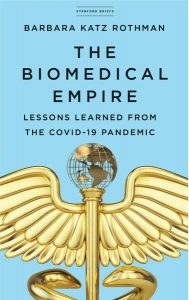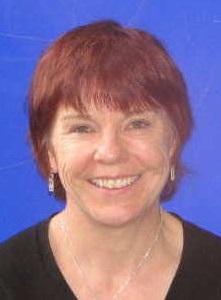Fulbright Chronicles, Volume 1, Number 3 (2022)
Author
Jill Thistlethwaite

The Biomedical Empire. Lessons Learned from the Covid-19 Pandemic by Barbara Katz Rothman, Fulbright Professor to the University of Groningen in the Netherlands in 1995 and Fulbright-Saastamoinen Foundation Distinguished Chair in Health Sciences, Finland in 2018.
As a medical doctor and educator, I have long been interested in the concept of professionalism and its less-discussed dark side, including self-regulation and physician self-interest. This book, by an eminent sociologist, acknowledges these concerns and delves further into how medicine, conceptualized as biomedicine, is now not only a profession but also an industry. The medical industrial complex, in our capitalistic society, has humans as its consumers and is profit-driven, especially in relation to over-medication driven by Big Pharma (the pharmaceutical companies). Dr. Rothman argues that the resulting Biomedical Empire is one of the largest economic powers globally, a power that over-medicalizes and over treats many health-related conditions, leading to low value care.
The Biomedical Empire is one of the largest economic powers globally, a power that over-medicalizes and over treats many health-related conditions.
In addition, the book conceptualizes the practice of medicine as both a religious and a governmental force, focussing on the individual rather than collective health and well-being. The Biomedical Empire ignores the social determinants of health, such as poor-quality housing, limited access to education, the widening gap between rich and poor, and subsequent health inequities, for example in Black populations.
Rothman has a particular interest in the medicalization of the beginning and end of life, and the chapters dealing with these events are fascinating, as is the discussion as to what is a person and a patient. However, sadly, the book is already out-of-date being written prior to the US Supreme Court’s overturning of Roe v. Wade and references the Court’s previous judgment that declared abortion to be a decision between a woman and her doctor.
The Covid-19 pandemic is featured in the last two chapters where Rothman brings together the themes of the previous chapters to question whether hospitalization was necessary for many of the people infected with the virus. Her argument is that during the early stages of the pandemic, medical intervention was restricted to in-patient care as there were no specific treatments available with which to make a profit. Many of my colleagues will argue that while a proportion of these hospitalizations may have been avoidable and many had adverse outcomes in terms of mental health, those patients that required oxygen and supportive management were unlikely to have done as well at home. While Rothman is challenging the biomedical system itself rather than individuals working within it, this fact did not reduce the discomfort I felt in places as a health professional. I do agree that we need to learn lessons from the handling of this pandemic for the others that are likely to come.
The final chapter considers what should be done to help put the care back into medicine in these difficult times. Rothman argues hospitals should be more user-friendly and there should be better access to community-based care. The focus should be on expanding health rather than expanding treatments.
Readers may be familiar with some of these arguments and may not agree with all of them. Taken together, though, this book is a powerful damnation of contemporary health care systems, particularly in the United States where every service is itemized and billed.
Barbara Katz Rothman, The Biomedical Empire. Lessons Learned from the Covid-19 Pandemic. Stanford, CA: Stanford Briefs, 2021. 153 pages. $14.
Biography

Adjunct professor Jill Thistlethwaite, University of Technology Sydney, is a health professional educator in Australia. She trained as a general practitioner (family physician) in England and has a PhD in medical education from the University of Maastricht. She has written widely on professionalism, communication skills and women’s health. She was a Fulbright Senior Scholar at the National Center for Interprofessional Practice and Education in Minneapolis in 2014.
